Find Help
More Items From Ergsy search
-

Blood Product Transfusions
Relevance: 100%
-
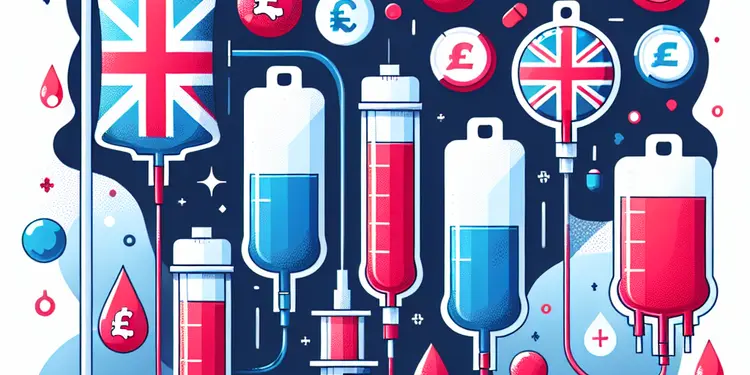
What types of blood products can be transfused?
Relevance: 91%
-
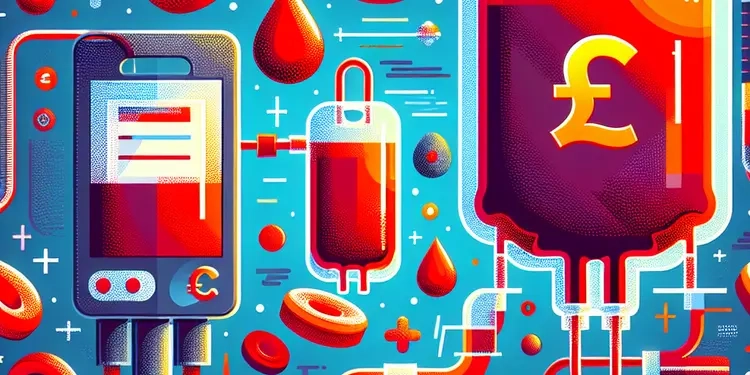
What is a blood transfusion?
Relevance: 80%
-
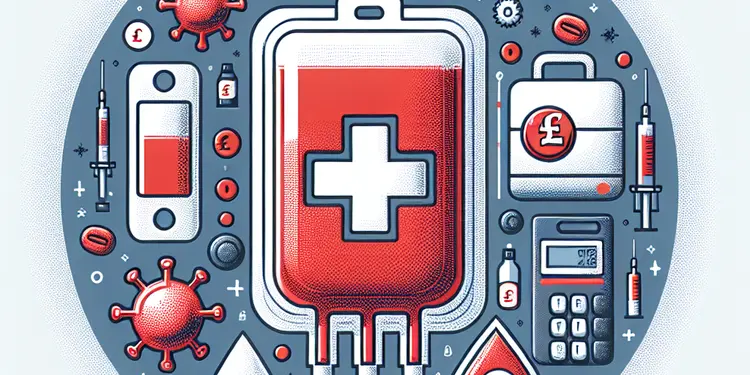
Is HTLV a risk in blood transfusions?
Relevance: 71%
-
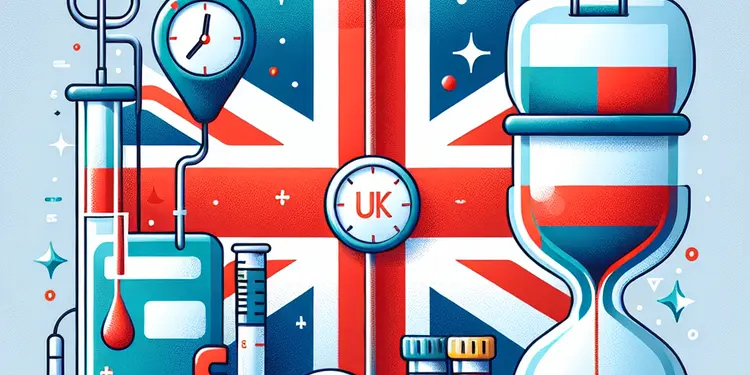
Is there an age limit for receiving blood transfusions?
Relevance: 70%
-

Blood Transfusion
Relevance: 70%
-
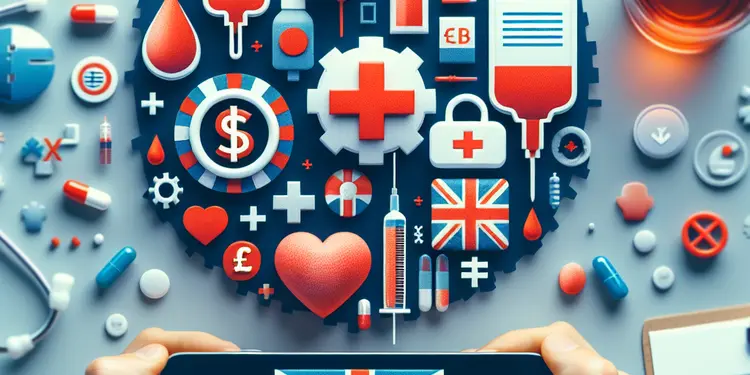
Are there risks associated with blood transfusions?
Relevance: 70%
-
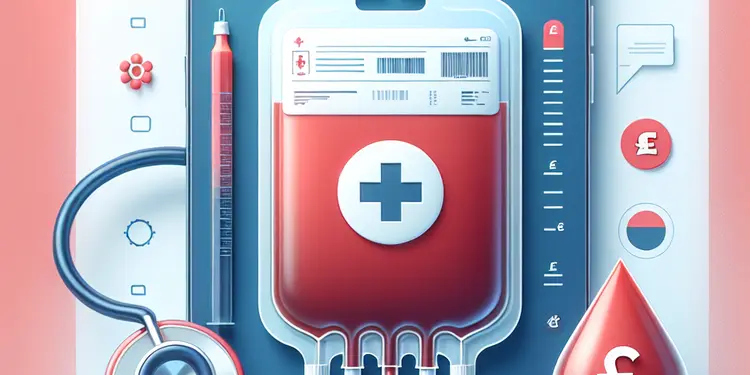
Can bacterial infections be transmitted through blood transfusion?
Relevance: 69%
-
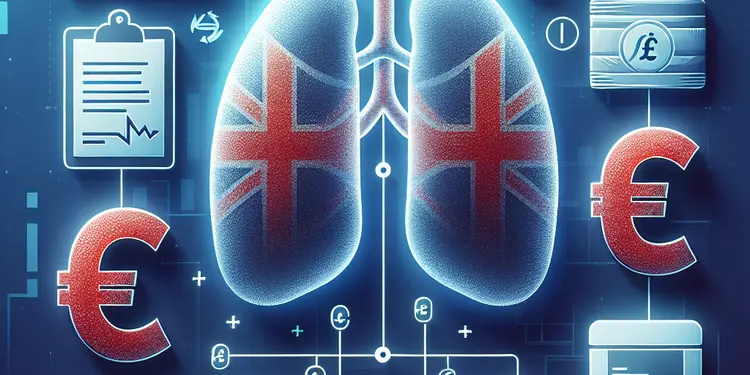
Is Hepatitis B a risk in blood transfusions?
Relevance: 68%
-
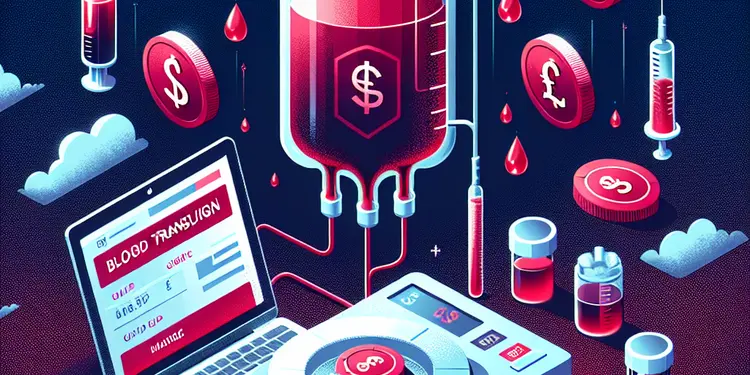
Why might someone need a blood transfusion?
Relevance: 68%
-
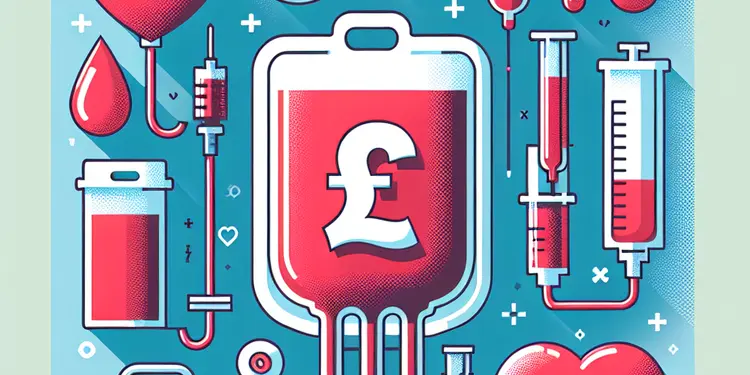
Can HIV be transmitted through blood transfusions?
Relevance: 68%
-
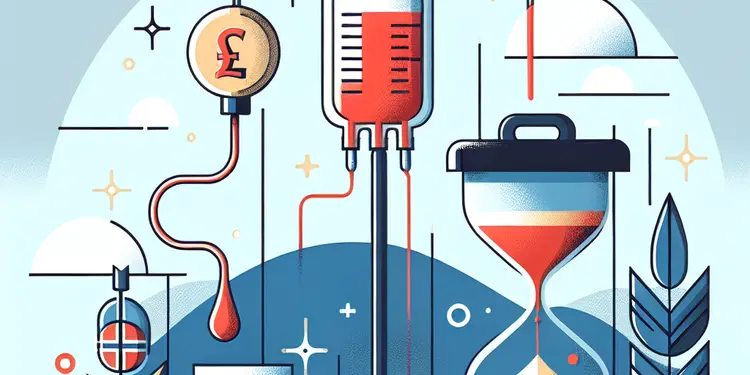
How long does a blood transfusion take?
Relevance: 66%
-
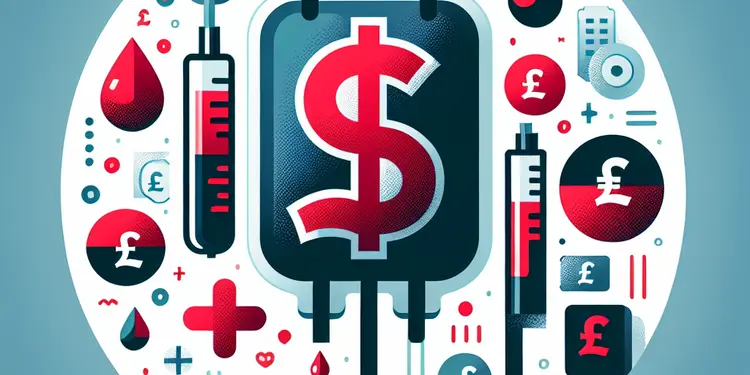
What are some common reasons blood transfusions are needed?
Relevance: 65%
-

What diseases can be spread by blood transfusions?
Relevance: 64%
-
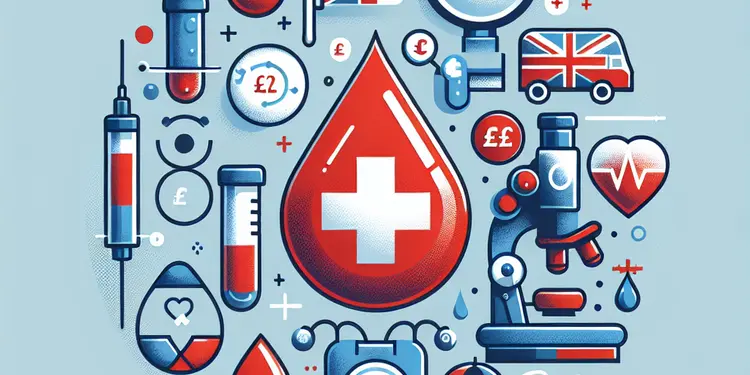
How do healthcare providers match blood for transfusions?
Relevance: 64%
-
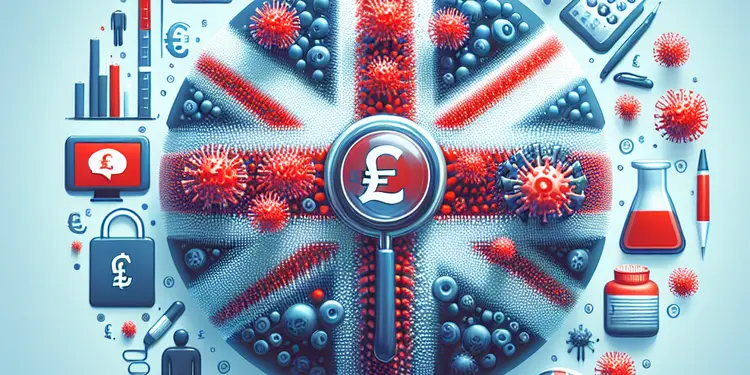
Is Zika virus screened for in blood transfusions?
Relevance: 64%
-

Is malaria still a concern for blood transfusion safety?
Relevance: 63%
-
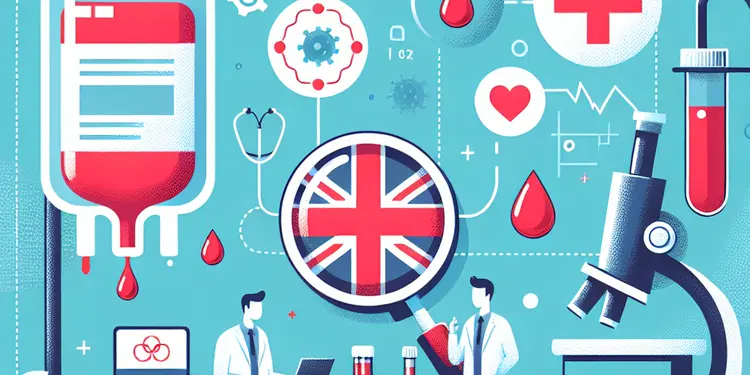
Can you get any prion diseases from blood transfusion?
Relevance: 63%
-
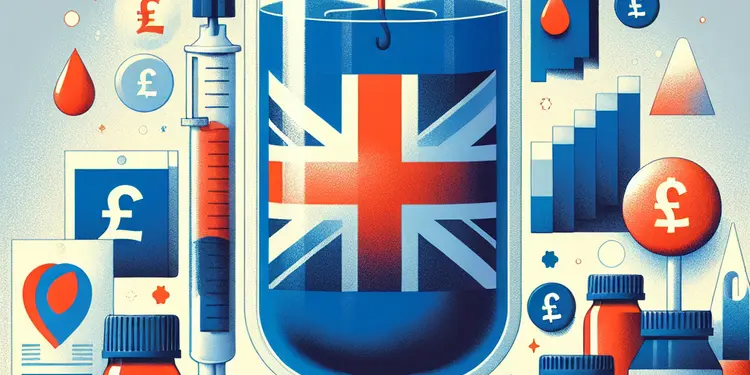
Is Chagas disease a concern with blood transfusions?
Relevance: 62%
-
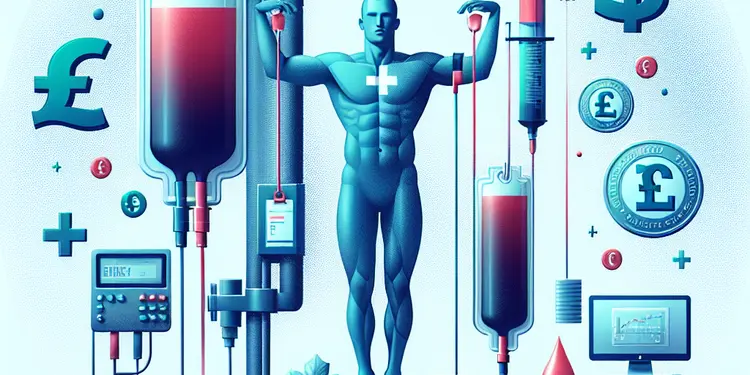
Can someone have a reaction to a mismatched blood transfusion?
Relevance: 61%
-
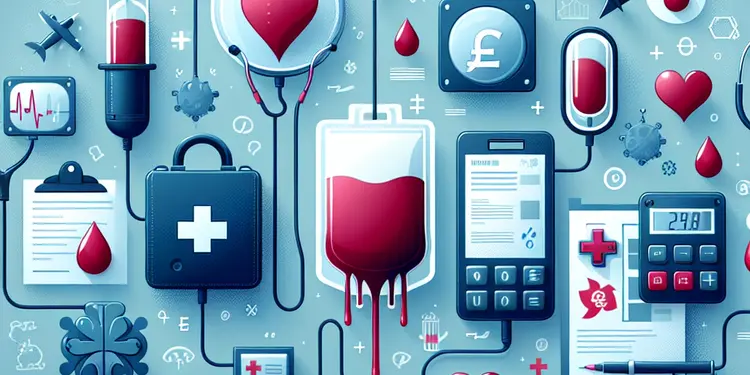
Can certain medical conditions prevent receiving blood transfusions?
Relevance: 61%
-
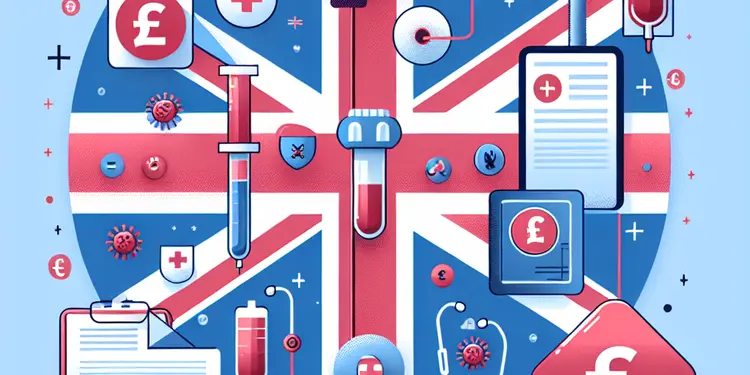
Are there any parasites that can be transmitted through blood transfusions?
Relevance: 61%
-
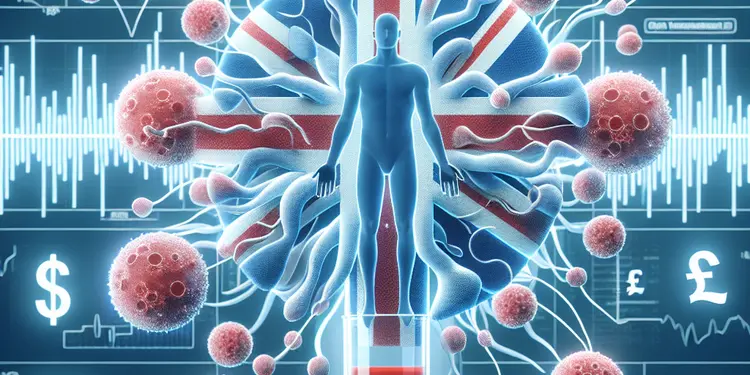
Can syphilis be transmitted via blood transfusion?
Relevance: 61%
-
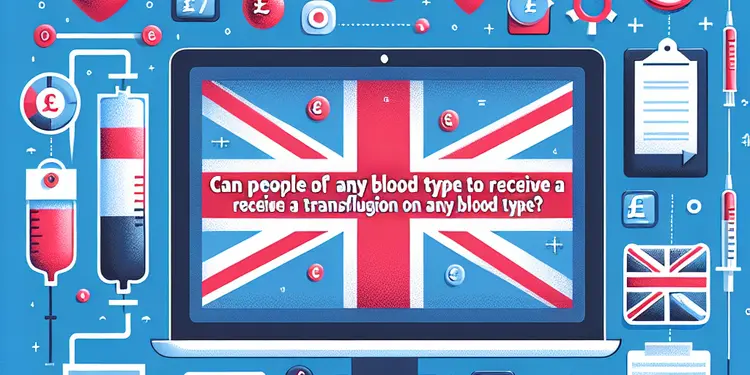
Can people of any blood type receive a transfusion of any blood type?
Relevance: 60%
-
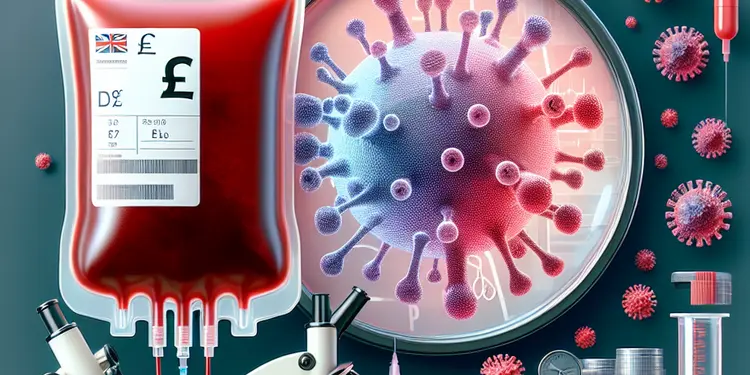
What is the most common disease transmitted by blood transfusion?
Relevance: 60%
-
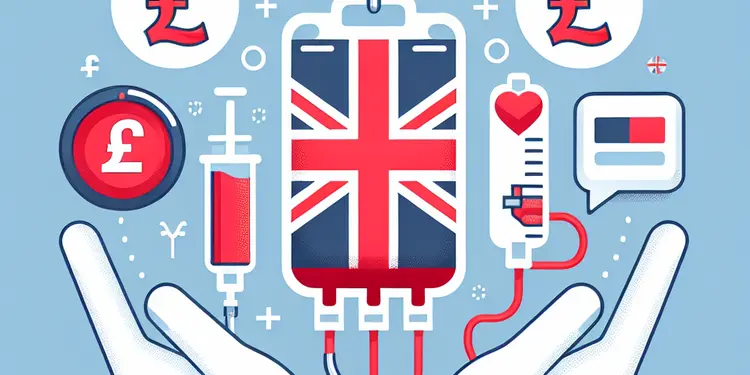
Can COVID-19 be transmitted through blood transfusions?
Relevance: 60%
-
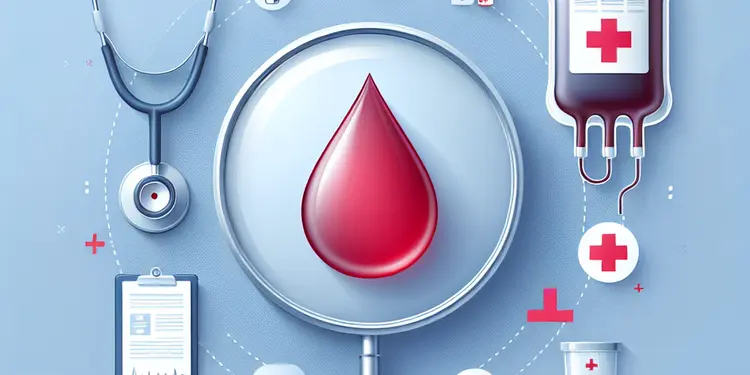
How do doctors determine how much blood is needed for a transfusion?
Relevance: 60%
-
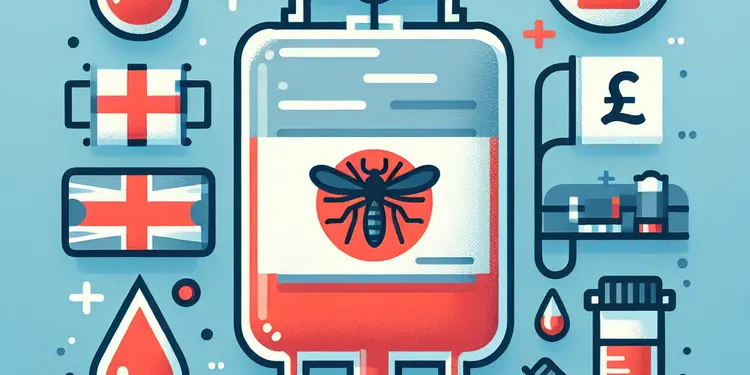
Can Dengue fever be transmitted through blood transfusions?
Relevance: 60%
-
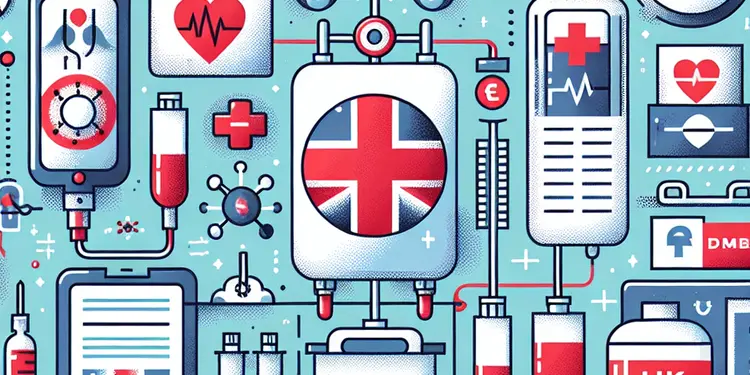
What measures are taken to prevent disease transmission in blood transfusions?
Relevance: 58%
-

Can cytomegalovirus (CMV) be spread through transfusions?
Relevance: 55%
-

What is plasma, and why might it be transfused?
Relevance: 53%
-
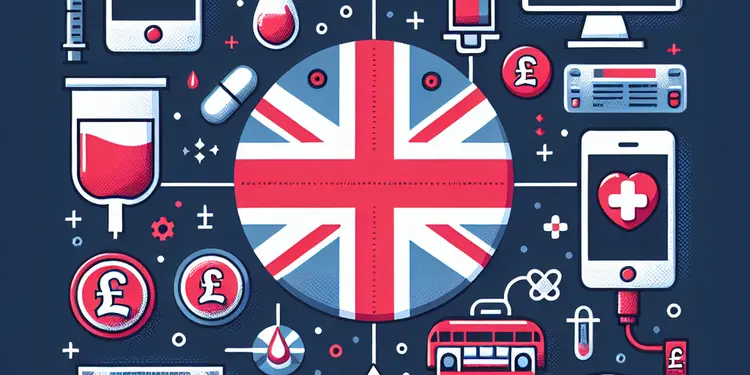
Is blood used for transfusions safe?
Relevance: 53%
-
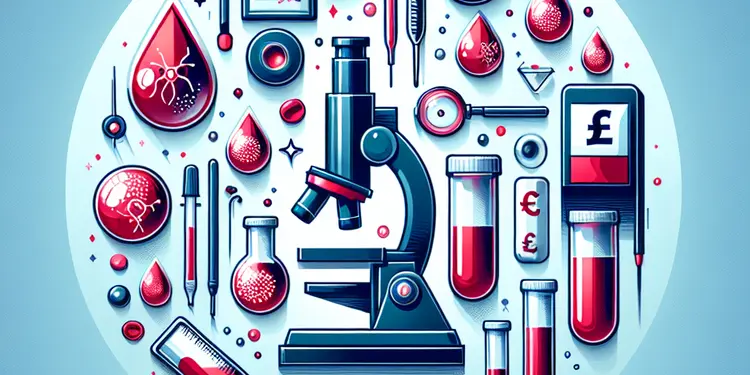
How is blood screened to prevent disease transmission?
Relevance: 50%
-

Are there global differences in screening for blood transfusions?
Relevance: 47%
-
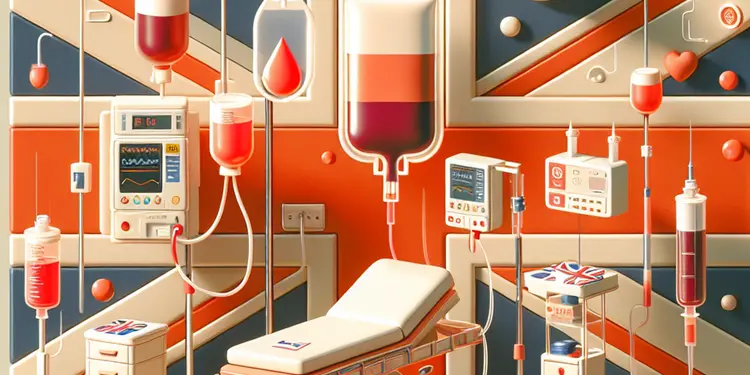
What should a patient expect after a blood transfusion?
Relevance: 43%
-
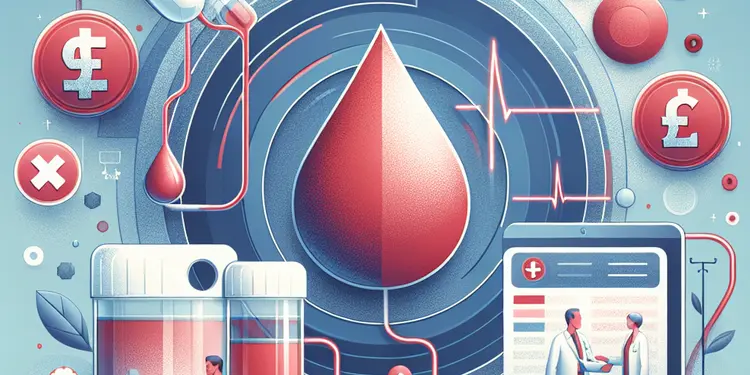
What kind of follow-up care is needed after a blood transfusion?
Relevance: 42%
-
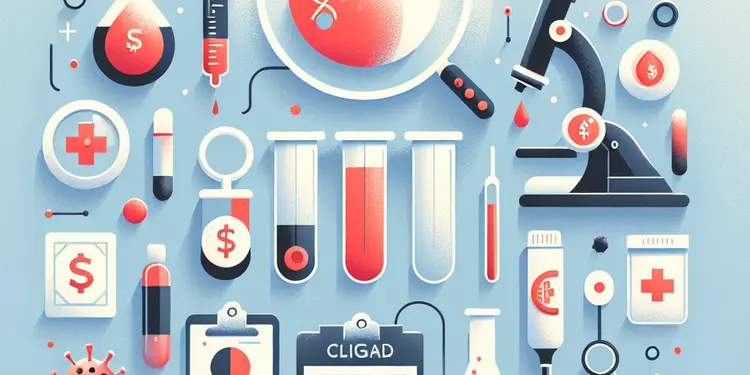
What other viruses are tested for in blood donations?
Relevance: 41%
-
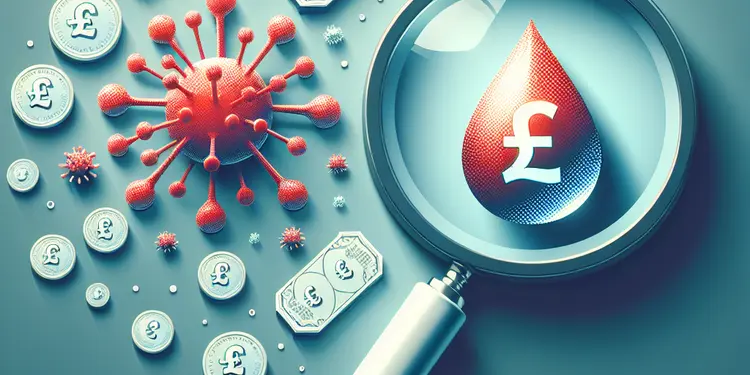
Are new emerging pathogens a risk for blood safety?
Relevance: 40%
-
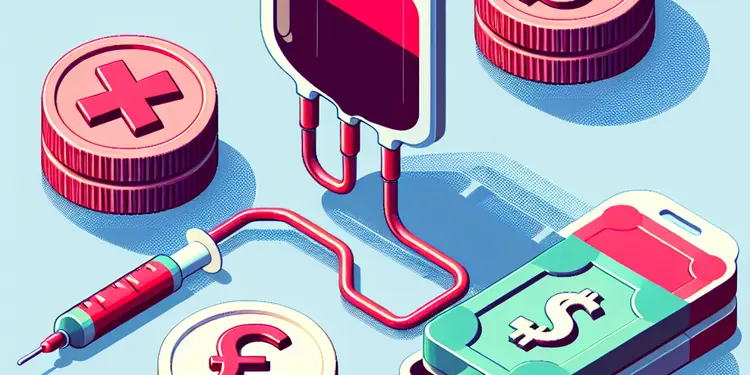
How is a blood transfusion performed?
Relevance: 35%
-

What is a Product Recall in the UK?
Relevance: 33%
Blood Product Transfusions
What are Blood Product Transfusions?
Blood product transfusions involve the administration of parts of blood, such as red blood cells, platelets, plasma, or cryoprecipitate, to patients who need them. These transfusions are critical in treating a range of medical conditions, including severe anaemia, bleeding disorders, and during major surgeries. The NHS Blood and Transplant (NHSBT) service ensures that blood products are available to those who need them in the UK.
Types of Blood Products
There are several types of blood product transfusions:
- Red Blood Cells: Mainly used to treat patients with anaemia or those who experience significant blood loss.
- Platelets: Essential for patients with low platelet counts or platelet dysfunctions, often due to cancer treatments or surgery.
- Plasma: Contains clotting factors and proteins and is used in emergencies like severe bleeding and plasma exchange therapies.
- Cryoprecipitate: Rich in clotting factors and mainly used to treat bleeding disorders such as haemophilia.
The Transfusion Process
The process of blood transfusion begins with blood typing and crossmatching to ensure compatibility. Blood products are then intravenously administered into the patient. The procedure is closely monitored to identify any potential adverse reactions early. It usually takes 1-4 hours, depending on the type and amount of blood product given.
Safety and Risks
Blood transfusions in the UK are highly regulated to ensure safety. The NHSBT rigorously screens donated blood for infections and matches blood types to minimise the risk of complications. However, risks, though rare, can include allergic reactions, fever, iron overload, and infections. Discussions with healthcare providers are important to understand the benefits and potential risks involved.
Conclusion
Blood product transfusions are a life-saving medical procedure essential in various critical conditions. The NHSBT's rigorous safety protocols ensure that these transfusions are as safe as possible. If you have any concerns or require more information, please consult with your healthcare professional or visit the NHSBT website.
Blood Product Transfusions
What are Blood Product Transfusions?
Blood transfusions give parts of blood to people who need it. These parts can be red blood cells, platelets, plasma, or cryoprecipitate. People might need blood transfusions if they are very sick or lose a lot of blood. The NHS Blood and Transplant (NHSBT) service in the UK makes sure there is enough blood for everyone who needs it.
Types of Blood Products
Blood can help in different ways:
- Red Blood Cells: Help people who are anaemic or have lost a lot of blood feel better.
- Platelets: Needed for people with low platelets, which can be caused by cancer treatment or surgery.
- Plasma: Helps in stopping severe bleeding and is used in some treatments.
- Cryoprecipitate: Used for people with bleeding problems like haemophilia.
The Transfusion Process
Before giving a blood transfusion, doctors make sure the blood is right for the patient. The process involves giving blood through a vein, which is watched very carefully. It can take from 1 to 4 hours.
Safety and Risks
Blood transfusions in the UK are very safe. The NHSBT checks all donated blood to make sure it is safe. Sometimes, there can be risks like allergic reactions or infections, but these are rare. It's important to talk with your doctor about any worries.
Conclusion
Blood transfusions can save lives. They are very important for people who are very sick. The NHSBT makes sure that the blood transfusions are safe. If you have any questions, ask your doctor or visit the NHSBT website.
Frequently Asked Questions
What is a blood transfusion?
A blood transfusion is a procedure in which donated blood or blood components are given to a person through a vein.
Why might someone need a blood transfusion?
Blood transfusions are needed for a variety of reasons, including severe blood loss from surgery or injury, treatment for certain illnesses such as anaemia or cancer, and to replace blood lost during childbirth.
Is receiving a blood transfusion safe?
Yes, blood transfusions are generally safe. The NHS follows strict guidelines to ensure the safety and compatibility of donated blood.
How is the blood for transfusions tested?
Donated blood is carefully tested and screened for blood type compatibility and for infectious diseases such as HIV and hepatitis before it is used for transfusions.
Can I refuse a blood transfusion?
Yes, patients have the right to refuse a blood transfusion. It’s important to discuss your concerns and alternatives with your healthcare provider.
How long does a blood transfusion take?
The duration of a blood transfusion can vary depending on the amount of blood needed, but typically a transfusion can take anywhere from one to four hours.
What are the potential risks of a blood transfusion?
While transfusions are generally safe, potential risks include allergic reactions, fever, iron overload, and very rarely, transmission of infectious diseases.
Who can donate blood?
Most healthy adults aged 17-66 who meet the eligibility criteria can donate blood in the UK. Some medical conditions, medications, or travel history may affect eligibility.
What are the different types of blood products that can be transfused?
Blood transfusions can involve whole blood, red blood cells, platelets, plasma, or cryoprecipitate, depending on the patient's needs.
Are blood donors compensated in the UK?
No, blood donors in the UK are not compensated. Blood donation is voluntary and helps to ensure a safe and sufficient blood supply.
Can I donate blood if I have had a transfusion?
There are specific guidelines regarding blood donation for individuals who have received a transfusion. Typically, you may need to wait before becoming eligible to donate blood.
What should I do to prepare for a blood transfusion?
Your healthcare provider will give you specific instructions. You might need to stop certain medications and disclose any allergies or medical conditions.
How will I feel during and after a transfusion?
Most people feel fine during a transfusion, although some may experience mild side effects like chills or dizziness. After the procedure, you should feel stronger and healthier, but follow-up care is important.
Can I have visitors during a blood transfusion?
In most cases, family or friends can visit you during a transfusion, but it's best to check with your healthcare facility for specific policies.
What should I do if I experience problems after a transfusion?
If you experience any unusual symptoms such as difficulty breathing, chest pain, or a high fever, contact your healthcare provider immediately or seek emergency medical care.
What happens in a blood transfusion?
A blood transfusion is when you get new blood. You get it from a bag through a tube into your body. This helps if you lose blood or if your blood is not healthy.
If you find this hard to read, ask someone to read it with you. They can help you understand more. You can also look at pictures to see how a blood transfusion works.
A blood transfusion is when someone gets blood from another person. The blood goes into their body through a tube in their arm.
Why would someone need new blood?
Sometimes, people might need new blood. This is called a blood transfusion. Here are a few reasons why someone might need it:
- They lost a lot of blood from an injury or during surgery.
- They have an illness that makes their blood weak.
- Their body does not make enough blood.
A doctor will help decide if someone needs a blood transfusion. If you have questions, you can ask the doctor or nurse.
Using pictures or talking to someone who knows a lot about this can help understand better.
People need blood transfusions for different reasons. They might need one if they lose a lot of blood during an operation or if they are hurt. A blood transfusion can also help people who feel very tired or sick, like those with anaemia or cancer. New mums may need extra blood after having a baby.
Is Getting a Blood Transfusion Safe?
Getting a blood transfusion means you are given new blood. This can help you feel better and get stronger. It is very safe because doctors check the blood carefully to make sure it is clean and healthy.
Here are a few ways to make it easier to understand:
- Ask Questions: It is okay to ask the doctor anything you do not understand.
- Use Pictures: Look at pictures or diagrams about blood transfusions to help you understand.
- Bring a Friend: Have a friend or family member with you to help listen and ask questions.
- Write Notes: Write down important things the doctor tells you.
Do not worry. Many people get blood transfusions and feel better afterwards.
Yes, getting blood from someone else is usually safe. Doctors and nurses make sure the blood is safe and matches well with the person getting it.
How do doctors check the blood for transfusions?
Doctors need to make sure the blood is safe before giving it to someone.
- Blood Tests: Doctors test the blood to check for any germs or diseases.
- Blood Type Match: They check if the blood type matches the person who will receive the blood.
- Storage: Blood is kept in special bags in a cold place to keep it fresh.
- Doctors and Nurses: Special workers, like doctors and nurses, use their skills to make sure everything is right.
If you find reading hard or need more help, you can:
- Ask a friend or caregiver to read with you.
- Listen to audio versions of text.
- Use simple reading apps for practice.
When people give blood, doctors check it very carefully. They make sure the blood is the right type. They also check that it does not have any bad germs. This keeps everyone safe when they get a blood transfusion.
Can I say no to getting blood?
You can say no if doctors want to give you blood. This is your choice. You can talk to your doctor about how you feel. Ask questions if you are not sure. A family member or friend can help you.
Tools:
- A simple list of questions to ask the doctor.
- A trusted person to help explain things.
Yes, you can say no to getting a blood transfusion. It’s important to talk with your doctor or nurse about your worries and other options.
How long does it take to get new blood?
Getting new blood is called a blood transfusion.
It usually takes 1 to 4 hours.
If you have questions, ask your doctor. They can help explain more.
A blood transfusion takes time. How long it takes can be different. It depends on how much blood you need. Usually, it takes between one and four hours.
What can go wrong with a blood transfusion?
Blood transfusions are usually safe. But sometimes, problems can happen. Some people might have an allergic reaction. Others might get a fever. Too much iron can be a problem too. It is very rare, but you might catch a disease.
Here are some ways to understand better: - Use simple words to ask questions. - If you do not understand, ask the doctor to explain again. - A friend or family member can listen and help you remember.
Who Can Give Blood?
Here is how to know if you can give blood:
- You are healthy and feeling well.
- You are old enough and weigh enough. Check with your doctor if you are not sure.
If you are still not sure, ask a doctor or nurse for help.
Most healthy people aged 17 to 66 can give blood in the UK. Some health problems or medicines might stop you from donating. Where you have traveled might also matter.
What types of blood can be given to people?
Doctors can give people four main types of blood:
- Red Blood Cells: These carry oxygen. They help people who have lost a lot of blood.
- Platelets: These help stop bleeding. They are good for people who have bruises or cuts that won't stop bleeding.
- Plasma: This is the liquid part of blood. It helps with fighting germs and healing wounds.
- Cryoprecipitate: This helps blood to clot, so it can stop bleeding.
To make reading easier, you can:
- Use a ruler or finger to follow along with the text.
- Ask someone to read with you and explain the parts you find hard.
- Take breaks if the information feels too much.
Sometimes people need to get blood from others to help them get better. This is called a blood transfusion. They might get:
- All of the blood.
- Just red blood cells.
- Platelets that help stop bleeding.
- Plasma, the liquid part of blood.
- Cryoprecipitate, which has special things to stop bleeding.
It depends on what the doctor thinks the person needs.
If reading is hard, you can try these:
- Text-to-speech tools to listen to the words.
- Reading with a friend or family member.
- Using a ruler or your finger to follow the lines.
Do people get money for giving blood in the UK?
No, people do not get money for giving blood in the UK. They give blood to help others. It's a kind thing to do.
Here are some things that might help:
- Ask a friend or family member to read with you.
- Use a ruler or your finger to keep your place while reading.
- Take your time. It's okay to read slowly.
No, people who give blood in the UK do not get paid. Giving blood is a choice. It helps make sure there is enough safe blood for people who need it.
Can I give blood if I got blood from someone else?
If you got blood from someone else, it's called a transfusion.
Talk to your doctor or the blood donation center.
They will tell you if you can give blood.
You can use a picture chart to understand better.
If you had a blood transfusion, you must follow special rules before giving blood. You might have to wait some time before you can donate. This helps to keep everyone safe.
How can I get ready for a blood transfusion?
Getting ready for a blood transfusion is important. Here are some simple steps:
- Talk to your doctor: Ask your doctor any questions you have. They will explain what happens during a blood transfusion.
- Share your health history: Tell your doctor about any health problems and medicines you take. This helps them take good care of you.
- Eat and drink: Have a light meal and drink water before your transfusion, unless your doctor tells you not to.
- Plan to rest: Make sure you have time to rest after the transfusion. It can make you feel tired.
- Bring a book or music: The transfusion might take a while. Bring something to do while you wait.
Tools to help: Use a calendar to write down your appointment. A friend or family member can also help remind you.
Your doctor will tell you what to do. You may need to stop taking some medicines. Tell them if you have allergies or health problems.
How will I feel during and after a blood transfusion?
When you get a blood transfusion, it's like receiving new blood into your body. You might feel a small pinch when the needle goes in, but it shouldn't hurt much.
During the transfusion, you could feel a bit tired or sleepy. Some people feel very normal.
After the transfusion, most people feel better. But some might feel dizzy or have a headache. If you feel strange, tell a doctor or nurse.
It can help to have a friend or family member with you for support. They can keep you company and make sure you feel okay.
Most people feel okay during a transfusion. Some might feel a bit cold or dizzy. Afterward, you should feel better and stronger. It is important to see the doctor for follow-up care.
Can people visit me during a blood transfusion?
Yes, people can visit you. Having family or friends visit can make you feel better.
If you feel worried, you can ask the nurse for help. They can explain what is happening.
Bringing something to do, like a book or music, can also help you feel calm.
Your family or friends can usually visit you while you have a transfusion. But, it's a good idea to ask the place where you're getting treatment about their visiting rules.
What to do if you feel unwell after a blood transfusion?
If you feel sick after getting blood, tell a doctor or nurse right away. They will help you.
You can use a list or draw pictures to show what you feel. This can help the doctor understand you better.
Always ask a friend or family member to stay with you. They can also talk to the doctor if you need help.
If you feel strange or sick, get help fast. Go to the doctor or hospital if you:
- Find it hard to breathe
- Have pain in your chest
- Have a very high fever
Ask someone you trust to help if you can.
Useful Links
Have you found an error, or do you have a link or some information you would like to share? Please let us know using the form below.
-->
This website offers general information and is not a substitute for professional advice.
Always seek guidance from qualified professionals.
If you have any medical concerns or need urgent help, contact a healthcare professional or emergency services immediately.
Some of this content was generated with AI assistance. We’ve done our best to keep it accurate, helpful, and human-friendly.
- Ergsy carfully checks the information in the videos we provide here.
- Videos shown by Youtube after a video has completed, have NOT been reviewed by ERGSY.
- To view, click the arrow in centre of video.
- Most of the videos you find here will have subtitles and/or closed captions available.
- You may need to turn these on, and choose your preferred language.
- Go to the video you'd like to watch.
- If closed captions (CC) are available, settings will be visible on the bottom right of the video player.
- To turn on Captions, click settings .
- To turn off Captions, click settings again.
More Items From Ergsy search
-

Blood Product Transfusions
Relevance: 100%
-

What types of blood products can be transfused?
Relevance: 91%
-

What is a blood transfusion?
Relevance: 80%
-

Is HTLV a risk in blood transfusions?
Relevance: 71%
-

Is there an age limit for receiving blood transfusions?
Relevance: 70%
-

Blood Transfusion
Relevance: 70%
-

Are there risks associated with blood transfusions?
Relevance: 70%
-

Can bacterial infections be transmitted through blood transfusion?
Relevance: 69%
-

Is Hepatitis B a risk in blood transfusions?
Relevance: 68%
-

Why might someone need a blood transfusion?
Relevance: 68%
-

Can HIV be transmitted through blood transfusions?
Relevance: 68%
-

How long does a blood transfusion take?
Relevance: 66%
-

What are some common reasons blood transfusions are needed?
Relevance: 65%
-

What diseases can be spread by blood transfusions?
Relevance: 64%
-

How do healthcare providers match blood for transfusions?
Relevance: 64%
-

Is Zika virus screened for in blood transfusions?
Relevance: 64%
-

Is malaria still a concern for blood transfusion safety?
Relevance: 63%
-

Can you get any prion diseases from blood transfusion?
Relevance: 63%
-

Is Chagas disease a concern with blood transfusions?
Relevance: 62%
-

Can someone have a reaction to a mismatched blood transfusion?
Relevance: 61%
-

Can certain medical conditions prevent receiving blood transfusions?
Relevance: 61%
-

Are there any parasites that can be transmitted through blood transfusions?
Relevance: 61%
-

Can syphilis be transmitted via blood transfusion?
Relevance: 61%
-

Can people of any blood type receive a transfusion of any blood type?
Relevance: 60%
-

What is the most common disease transmitted by blood transfusion?
Relevance: 60%
-

Can COVID-19 be transmitted through blood transfusions?
Relevance: 60%
-

How do doctors determine how much blood is needed for a transfusion?
Relevance: 60%
-

Can Dengue fever be transmitted through blood transfusions?
Relevance: 60%
-

What measures are taken to prevent disease transmission in blood transfusions?
Relevance: 58%
-

Can cytomegalovirus (CMV) be spread through transfusions?
Relevance: 55%
-

What is plasma, and why might it be transfused?
Relevance: 53%
-

Is blood used for transfusions safe?
Relevance: 53%
-

How is blood screened to prevent disease transmission?
Relevance: 50%
-

Are there global differences in screening for blood transfusions?
Relevance: 47%
-

What should a patient expect after a blood transfusion?
Relevance: 43%
-

What kind of follow-up care is needed after a blood transfusion?
Relevance: 42%
-

What other viruses are tested for in blood donations?
Relevance: 41%
-

Are new emerging pathogens a risk for blood safety?
Relevance: 40%
-

How is a blood transfusion performed?
Relevance: 35%
-

What is a Product Recall in the UK?
Relevance: 33%


